Making music is amazing, isn’t it?! We literally create something from nothing, we have the ability to move energy in the form of sound and create emotions and memories. I suppose with anything so powerful, there are always pitfalls — ways we can come off the tracks and get caught up in things that don’t actually help us get to that end result of sharing music and changing lives. I’ve had over 25 years of joy from music production, and fallen foul of everything in this list and more… so from me to you, here are five mistakes that hopefully we can avoid making in our quest to make better music!
Too many plugins
Ah, plugins. The infinite well of music production tools, with everything from instruments to effects to utilities. Plugins, whether they’re VST, AU, AAX, CLAP, or any other, are essential pieces of the music production puzzle for anyone making music on a computer. They extend the functionality of a DAW, give us inspiration, enable new possibilities… but really, we don’t need that many.
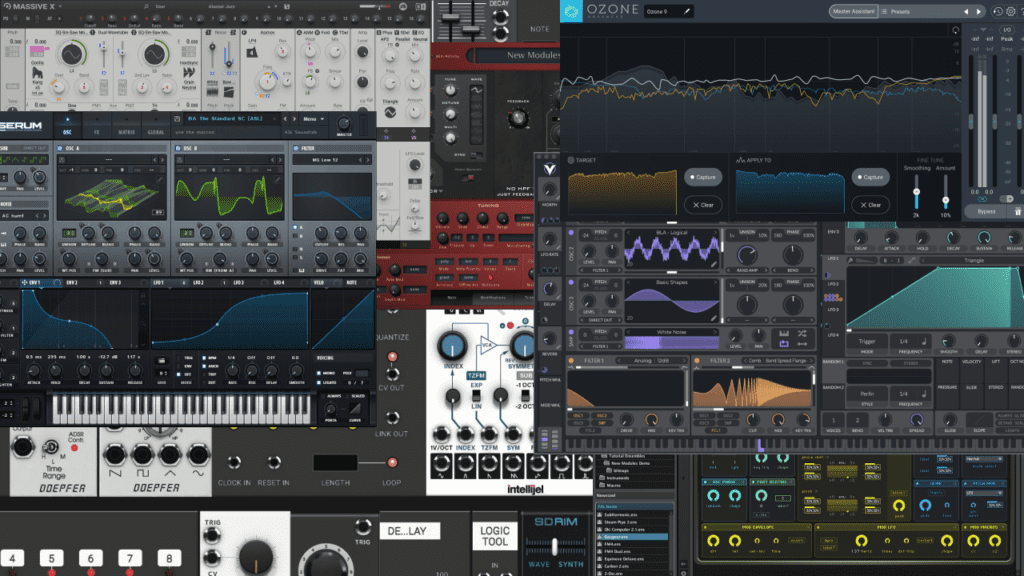
When it really comes down to it, plugins are tools. A master craftsman doesn’t have a thousand different saws, they have just a few, reliable, high quality tools with variations for specific jobs — and music production is no different. By all means, have fun selecting your favourites. Plugins can look different, operate differently, and their design and workflow can be best suited to different styles and genres of music. Finding the tools that we enjoy using and give us quick, desirable results is important.
But… we don’t need a hundred synths. We don’t need 30 EQ plugins. Every decision we introduce into our workflow slows us down. Every new interface and every different methodology for creating sounds is something something new to learn, a different place to go to in our minds. Developing the skill to select a small number of plugins, just a couple of possibilities for any task, and then really learning how to get the best out of a small toolset, is incredibly freeing.
When we really know our gear, we know what its limitations are. If we run into a problem working inside the limitations of our small plugin toolkit, we’ll know when it’s really time to expand it a little and for exactly what reason. Until then, ditch the fluff. Your DAW will load faster, your workflow will speed up, and you’ll find yourself focusing on getting the sound you want — not messing around trying to find tools that will do it for you (they won’t). Essential Music Production is the ideal way to get to grips with exactly what you need… and what you don’t.
Too much preset scrolling
So, we’ve sorted the wheat from the chaff and your plugin list is suddenly manageable and inspiring. But there’s still danger! Spending time searching for the perfect preset is like endlessly scrolling Netflix for something to watch, only to realise we’ve run out of time for actually watching anything at all.
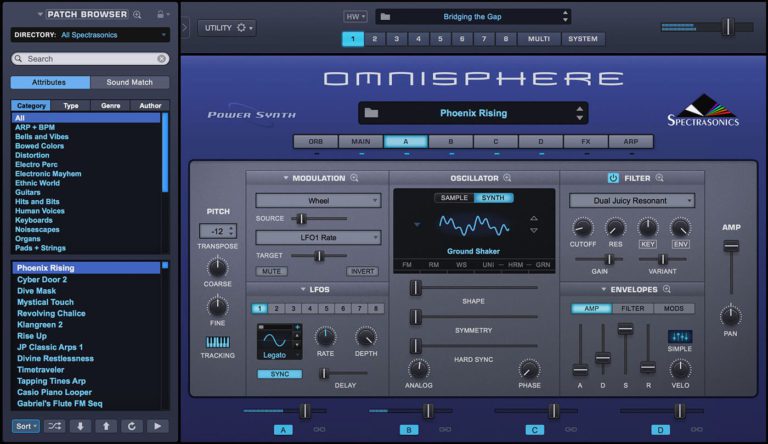
A synth with a good preset library can be an amazing way to kickstart the creative process, and presets tend to fall into a couple of categories. Especially the presets that come bundled with synths tend to be synth sellers as much as creative tools. There’s so much going on that they can be dazzling, and even outside of the potential difficulties of getting them to really work well in your mix it’s so easy to get caught up in imagining the amazing tracks we could be making with them as we scroll endlessly through, suddenly focusing more on potential than our original goal of actually finishing something!
Going the other way, many amazing presets are amazing because of how expressively they can be played. Whether it’s a synth with incredible modulation potential or a sampler patch with amazing keyswitching and nuance, just going through a never-ending list by pressing the same couple of keys to audition the sound doesn’t do them justice, and it puts us into a mindset where we’re looking for something to make the music for us — when the truth is, a vintage toy keyboard played well will be a million times more emotionally interesting than a 50GB authentically reproduced rare piano triggered by random hopeful key presses.
Presets are great, but they’re starting points. The real music comes from us (Essential Music Theory will give you the confidence to be more musical!). Relying on a few great presets that we can put in a favourites section in our libraries, and learning how to tweak and program our gear so that we can quickly get to the sound that’s in your head is liberating!
Not learning basic theory
Boo, theory’s not music, right?! True. Theory isn’t music, it’s a series of observations about music. What we call music is an amazing emotional response to the reality of energy moving through matter in ways that we find inexplicably pleasing. All theory is is a way to make us more aware of the mechanisms of that wonder, and with more awareness comes more ability to control things to our will. A dominant chord needs to resolve to a tonic chord to provide us with a sense of relief, and we might not be able to explain why we’re even able to experience anything at all on a cosmic level… but we can certainly understand the underlying principles of how to make these things happen.
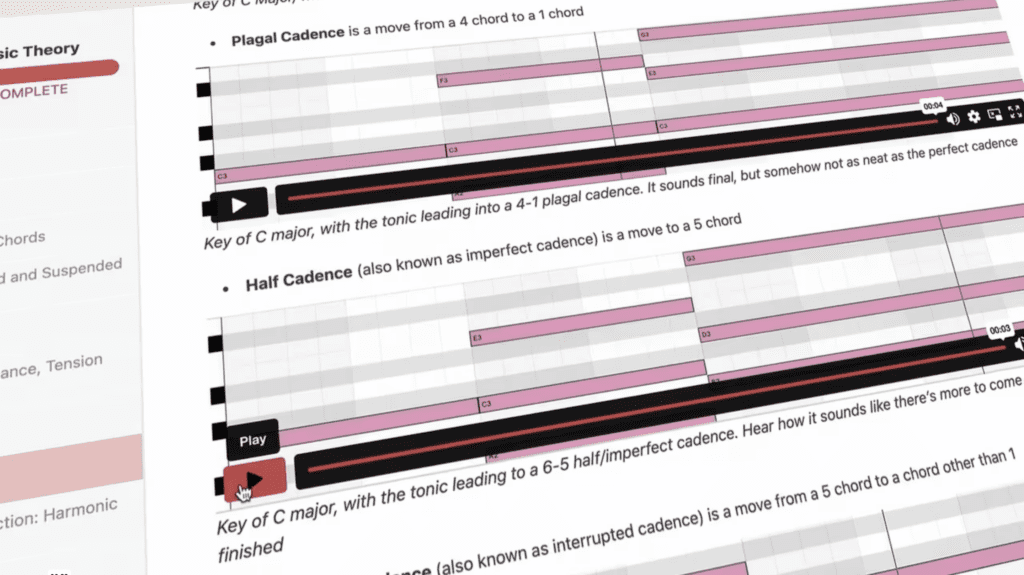
Music theory is like getting coaching on how best to sink a free throw. If nobody ever told us what we were doing, then sure — practice enough and we’ll probably get there eventually, and in fact we’ll probably be able to teach someone else the way we think about our aim, our movement, our focus… but it’ll take longer than if someone passed their knowledge on to us, and it’ll likely be the same knowledge anyway. On the other side of the coin, getting coached but never practicing will never bring us any closer to actually getting the ball in the bucket. There’s a deep connection between learning and doing, and improving our awareness of what our minds and bodies go through when we intuitively make those connections will really help us to perform more instinctively and intuitively. There’s really no downside!
Not learning an instrument
Oh, I’m super guilty of this one. I’ve had a musical keyboard in my studio for 25 years, and so by rights I should be a virtuoso now. But… I’m not. Learning to play an instrument is difficult. Being bad at things sucks, and we tend to try and find ways around the things we’re not good at rather than pushing through the wall. Without being able to play an instrument at at least a basic level, though, there’s a pretty big limit on the quality of music we can make.
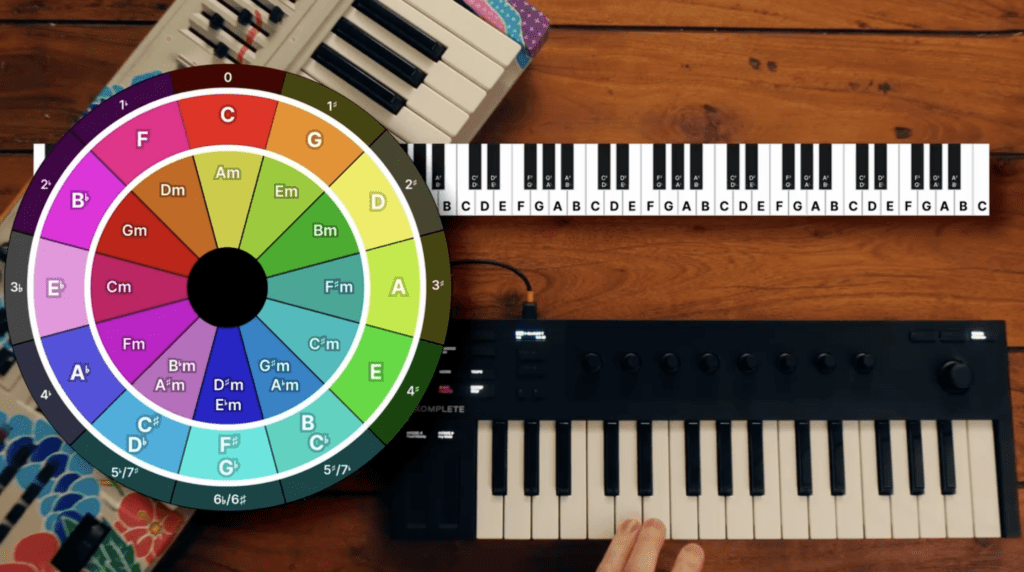
No amount of plugins, no amount of presets, no amount of sound design, mixing, mastering, or anything else will get around the fact that a rickety old toy piano played by someone that’s put the time in will make people smile, laugh, cry, and dance more than a million dollar production with no human emotion.
We’re in this for the long run, right? Learning is a cumulative process, so even a few minutes a day will really add up over the weeks, months, and years. Being able to sit down and get what’s in our heads out and recorded, even if it’s just playing a simple one-note bassline without having to press keys randomly until you find the right notes, is one of the most rewarding things about music production, which is why we created Essential Music Theory!
Not finishing songs
Not every song needs to get finished! But every song that could, should. We’ve all got a million four bar loops saved as projects, all full of promise… all doomed to sit there gathering dust.
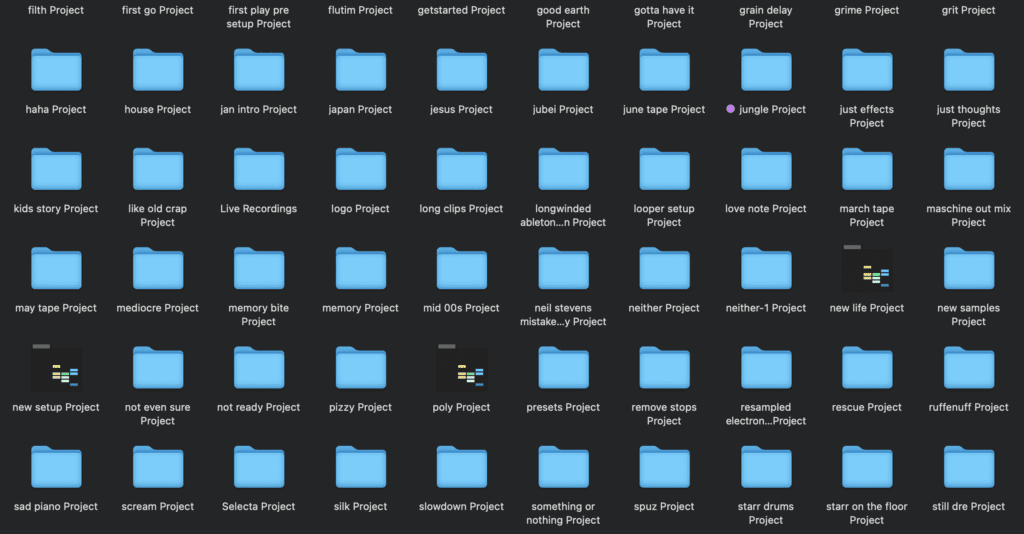
Just making the ‘middle bit’ is exciting. It’s the part of a song we remember, know and love. It’s not a song though, is it?! The better we get at making these slices of what a song could be without ever developing them into a fully cohesive song with a beginning, middle, and end, the weaker our confidence becomes in actually creating a completed song. Before we know it, we’re avoiding doing the hard bit and using the gratification of the bit we’ve gotten good at, basking in the potential of making something amazing.
Let’s confront our demons! I can be a terrible procrastinator if I let myself, perfectionism rearing its ugly head and making me fear not living up to the standards I hold myself to. But really, the only way to get better at anything is to do it. Over and over. Turn loops with amazing potential into average songs. Hey, turn them into bad songs, it doesn’t matter. We can go back to them one day when we’ve developed our skills more. And the funny thing is, the more songs we finish, the more making a whole song will feel as second nature as making a loop. Our loop starting points won’t take as long to get to the point we’re ready to start building out structure, and the momentum we start with doesn’t get lost tweaking and ‘perfecting’ that same few seconds. It’s amazing what happens when we push through a wall!
More, you say?! Let’s take a look at 5 More Mistakes Most Producers Make (and how to avoid these too!)


